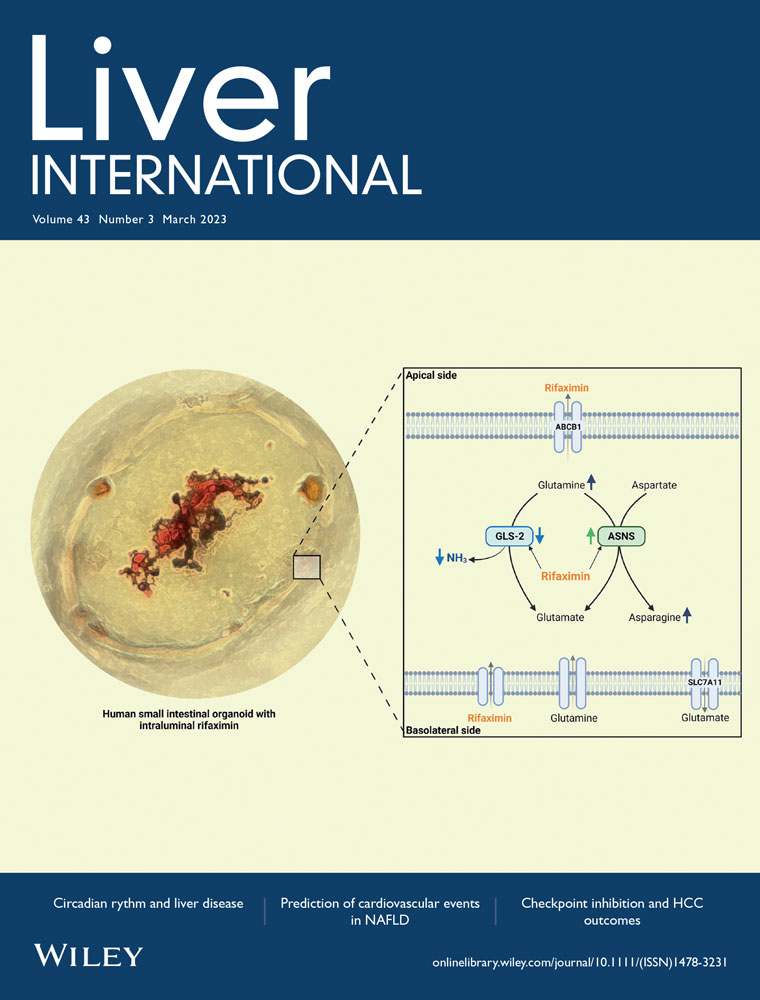Enoxaparin attenuates pyrrolizidine alkaloids-induced hepatic sinusoidal obstruction syndrome by inhibiting oncostatin M expression
Hongyu Xiang and Chang Liu are contributed equally.
Handling Editor: Dr. Luca Valenti
Abstract
Background and Aims
The definitive treatment for pyrrolizidine alkaloids (PAs)-induced hepatic sinusoidal obstruction syndrome (HSOS) is not available. The effectiveness of anticoagulation therapy remains controversial. The efficacy of low molecular weight heparin (LMWH) should be investigated in patients and animal models, and the underlying mechanism should be explored.
Methods
The prognosis of patients with PAs-HSOS who received anticoagulation therapy was retrospectively analysed. The effect of enoxaparin on the liver injury was determined in animal models of monocrotaline (MCT)-induced HSOS was determined, and the underlying mechanism was investigated using a murine model.
Results
The cumulative survival rate of patients with PAs-induced HSOS was 60.00% and 90.90% in the non-anticoagulation group and anticoagulation group. Enoxaparin attenuated liver injury effectively in a rat model of MCT-induced HSOS. Additionally, the improvement of severe liver injury was observed in MCT-treated mice after the administration of enoxaparin (40 mg/kg). The alleviation of liver injury was observed in mice with hepatocyte-specific deletion of oncostatin M (Osm△Hep). In MCT-treated mice administrated with enoxaparin, no significant differences in liver injury were observed between Osm△Hep mice and Osmflox/flox mice. Additionally, adenovirus-mediated overexpression of Osm resulted in severe liver injury in MCT-induced mice after the administration of enoxaparin.
Conclusions
LMWH attenuated severe liver injury in patients with PAs-Induced HSOS and animal models of MCT-induced HSOS, which provides a rationale for the application of anticoagulation therapy.
CONFLICTS OF INTEREST
The authors declare that they have no conflict of interest.




